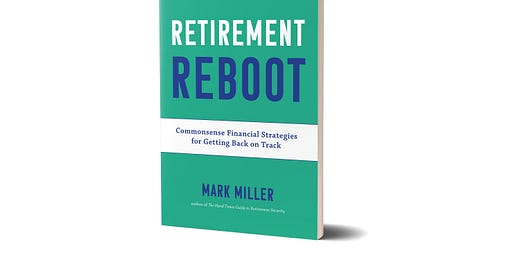Funding cuts have put Social Security customer service in crisis mode
Call the Social Security toll-free number for assistance these days, and you’ll get this message: “We are experiencing service issues including poor call quality, dropped calls and long wait times. We apologize in advance if you encounter disruptions.”
That pretty well sums up the state of customer service at the Social Security Administration (SSA), whether over the phone or in person at the agency’s sprawling national network of field offices. Need help signing up for retirement benefits or Medicare? Applying for disability benefits? Good luck with that.
The SSA has been plagued by years of cuts to its administrative budget imposed by Congress just as the aging of the country has meant an exploding workload. The number of beneficiaries has jumped 21 percent since 2010, yet its operating budget shrank 17 percent, adjusted for inflation. Staffing has fallen by 13 percent, and now is at its lowest in 25 years.
This year, the agency has returned to in-person service at its sprawling network of field offices around the country with a workforce that is seven percent smaller than before the pandemic, according to the SSA. Funds have not been available to replace departing workers.
This month, the SSA is waiting for news about resources to address its problems while Congress engages in year end deliberations about the broader federal budget.
Learn more in my new Reuters Money column.
Join me for an interactive workshop on retirement planning
I’ll be discussing my new book during an interactive, online workshop on January 24th. I hope you’ll join me!
The 90-minute workshop, hosted by Bookends University, will offer practical strategies for improving your retirement prospects, even if your savings are meager and retirement is looming! It will draw from material in Retirement Reboot: Commonsense Financial Strategies for Getting Back on Track.
We’ll walk through core decisions to make now to improve retirement outcomes, including
Timing Your Retirement
Optimizing Social Security
Navigating Medicare
Tapping Home Equity
Building Savings
Financing long-term care needs
Tuition for the event is $45, which includes a copy of Retirement Reboot. Bookends University is sponsored by Bookends & Beginnings, my favorite independent bookstore. You can pick up your copy at the store if you’re local, or have it mailed to you.
Where do seniors get information about Medicare enrollment?
The annual Medicare enrollment season ended yesterday. Where did you go for advice about plan selection?
Enrollment is one of the more complex chores we face in retirement and one of the most important for controlling health insurance costs and assuring access to needed care.
Most of us could use some expert help. But nearly half (45%) of seniors enrolled in traditional Medicare are do-it-yourselfers, and so are 37% of those enrolled in Medicare Advantage, the commercially offered managed care alternative to the traditional program, according to research by The Commonwealth Fund.
How about the other half of enrollees? Commonwealth’s data for Medicare Advantage shows that enrollees mainly turn to a mix of insurance brokers, friends and family.
This is a troubling picture in light of a recent U.S. Senate Finance Committee report that documents a range of fraudulent and misleading marketing practices used to sell Medicare Advantage plans. Much of the concern centers on third-party brokers who sell plans on behalf of insurance companies. That report followed the release of data by the Centers for Medicare and Medicaid Services (CMS), which runs Medicare, that the number of complaints it received about deceptive marketing surged 155% in 2021 compared with 2020.
Learn more in my latest WealthManagement.com column.
What I’m reading
How hospice became a for-profit hustle . . . Ideas for saving on yearend taxes . . . I-bonds aren’t the only way to fight inflation . . . Deaths from substance abuse rose sharply among older Americans in 2020 . . . Assisted living too often fails older residents . . . Get ready for Paxlovid sticker shock . . . How would you feel about a 100-year-old doctor?




